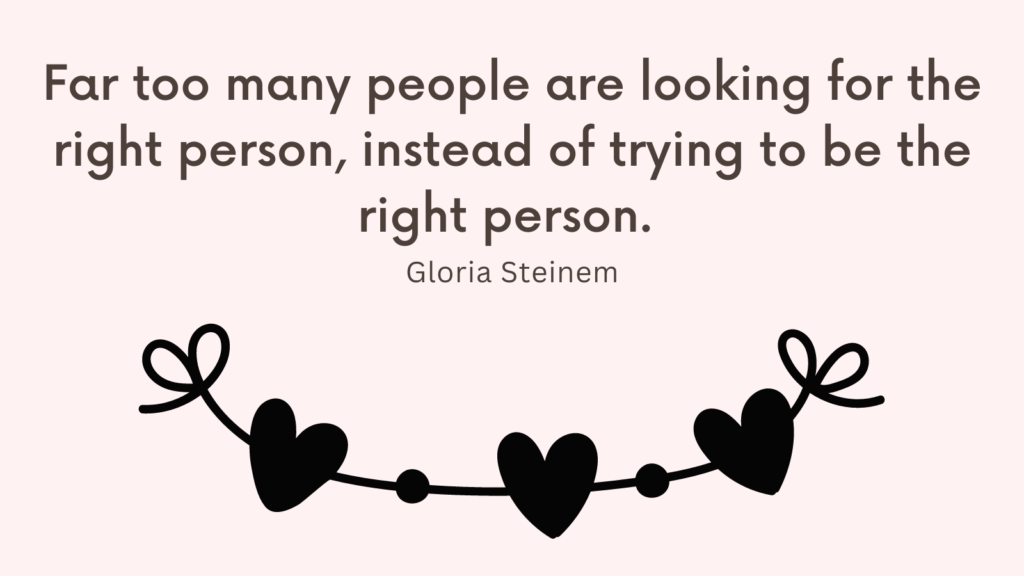This post contains a list of signs your needs aren’t being met.
Signs Your Needs Aren’t Being Met
Here are some signs indicating that your needs may not be met:
1. Persistent Feelings of Discontent
If you frequently experience a sense of dissatisfaction or restlessness, it may indicate that your fundamental needs are not being fulfilled.
This could manifest as a vague feeling of discontent or a persistent longing for something more in life.
2. Chronic Stress and Overwhelm
When your needs are unmet, you may find yourself grappling with chronic stress, feeling overwhelmed by daily responsibilities and challenges.
This can result from a lack of support, resources, or time for self-care.
3. Emotional Imbalance
Unmet needs often contribute to emotional imbalance.
You may find yourself experiencing frequent mood swings, heightened sensitivity, irritability, or persistent feelings of sadness or anxiety.
4. Strained Relationships
If your relational needs are not met, you may notice strain in your relationships.
This could manifest as recurring conflicts, feelings of isolation, frequent misunderstandings, or a lack of meaningful connection with others.
5. Physical Symptoms
Chronic unmet needs can manifest in physical symptoms such as fatigue, sleep disturbances, muscle tension, headaches, or changes in appetite.
The mind-body connection means that unmet emotional and psychological needs can manifest as physical discomfort.
6. Lack of Motivation and Purpose
When your needs go unfulfilled, you may struggle to find motivation and a sense of purpose in your daily life.
This can lead to a pervasive feeling of apathy or a lack of drive to pursue your goals and interests.
7. Escapist Behaviors
Engaging in escapist behaviors such as excessive use of alcohol, substances, or screen time may indicate an attempt to cope with unmet needs by seeking temporary relief from emotional discomfort.
8. Negative Self-Talk and Low Self-Worth
Unmet needs can contribute to negative self-perception and low self-worth.
You may find yourself engaging in self-criticism, harboring feelings of inadequacy, or struggling with self-doubt.
9. Perfectionism and Over-Achieving
In an attempt to compensate for unmet needs, individuals may adopt perfectionist tendencies or engage in relentless over-achieving behaviors, seeking external validation to fill the void left by unmet needs.
10. Lack of Fulfillment in Activities
If you consistently feel unfulfilled or disinterested in activities that once brought you joy, it may signal that your deeper needs are not being addressed.
Related: How to Fulfill Unmet Emotional Needs?
Common Reasons For Unmet Needs
Here are several common reasons why individuals may experience unmet needs:
1. Lack of Self-Awareness
Many individuals may not have a clear understanding of their own needs, leading to difficulties in recognizing and articulating what is truly important to them.
This lack of self-awareness can hinder the fulfillment of their emotional, social, and psychological needs.
2. Ineffective Communication
Difficulties in expressing one’s needs to others can lead to unmet needs.
Poor communication skills or fear of being misunderstood or rejected can prevent individuals from clearly conveying what they require from their relationships and interactions.
3. Unhealthy Relationship Dynamics
In certain relationships, individuals may find it challenging to have their needs met due to power imbalances, codependent patterns, or a lack of mutual respect and empathy.
These unhealthy dynamics can impede the satisfaction of fundamental needs.
4. External Stressors
External stressors such as financial pressures, work demands, or major life changes can divert attention and resources away from addressing personal needs, leading to neglect in essential areas of well-being.
Related: Top 10 Emotional Needs Of A Woman & A Man In A Relationship
5. Past Trauma and Emotional Wounds
Unresolved trauma or past emotional wounds can create barriers to having one’s needs met.
These experiences may lead to deep-seated fears, trust issues, and emotional triggers that interfere with the recognition and fulfillment of current needs.
6. Cultural and Societal Expectations
Societal norms, cultural expectations, and familial dynamics can influence individuals’ perceptions of their needs and their ability to prioritize and address those needs.
Adherence to external expectations may lead to neglect of personal well-being.
7. Lack of Boundaries
When individuals struggle to set and maintain healthy boundaries in their relationships and daily life, they may find their needs overlooked or overshadowed by the needs of others.
This can result in unmet emotional, physical, and relational needs.
8. Fear of Vulnerability
The fear of vulnerability and emotional exposure can prevent individuals from seeking support and openly communicating their needs.
This fear may stem from past rejection, judgment, or experiences of invalidation.
9. Internalized Beliefs and Self-Perception
Negative self-perception, internalized beliefs about unworthiness, and a lack of self-compassion can contribute to the neglect of one’s needs.
Individuals may struggle to prioritize their well-being due to deeply ingrained negative beliefs about themselves.
10. Overemphasis on External Validation
An excessive focus on seeking external validation and approval can lead individuals to prioritize meeting others’ expectations at the expense of their own needs, resulting in unmet emotional and psychological needs.
By recognizing these common reasons for unmet needs, individuals can begin to explore strategies for addressing these underlying factors and fostering a greater sense of self-awareness, assertiveness, and healthy relationship dynamics.
Related: Relationship Expectations: Realistic vs. Unrealistic Expectations
Steps To Address Unmet Needs
Recognizing and taking action to fulfill your needs is an important aspect of self-care and personal growth. Here are some steps that can help you address unmet needs in a healthy and constructive manner:
1. Self-Reflection and Identification
Take time for self-reflection to identify and acknowledge your unmet needs.
This involves exploring your emotions, thoughts, and behaviors to gain insight into the areas of your life where you may be feeling dissatisfied or unfulfilled.
2. Articulation of Needs
Clearly articulate your needs to yourself and, if appropriate, to others.
Use “I” statements to express your feelings and desires, emphasizing the importance of open and honest communication in addressing unmet needs.
3. Seek Support
Reach out to trusted individuals, such as friends, family members, or a therapist, to create a supportive network that can assist you in recognizing and meeting your needs.
Seeking support can offer validation, guidance, and practical assistance.
4. Set Boundaries
Establish and maintain healthy boundaries in your relationships and daily life to protect your well-being and prioritize your needs.
Communicate your boundaries assertively and respectfully, and be prepared to uphold them.
Related: How to Fight Alienation of Affection? (+Affection Quiz)
5. Develop Self-Care Practices
Engage in regular self-care activities that nurture your physical, emotional, and psychological well-being.
This may include exercise, mindfulness practices, hobbies, relaxation techniques, or any activities that bring you joy and fulfillment.
6. Challenge Limiting Beliefs
Identify and challenge any internalized beliefs or negative self-perceptions that may be hindering the acknowledgment and prioritization of your needs.
Here are some common examples:
“I don’t deserve to prioritize my needs.”
Practice self-compassion and recognize that everyone deserves to have their needs acknowledged and met. Engage in positive affirmations and reflect on your inherent worth.
“I should always put others first.”
Consider the importance of balance and mutual support in relationships. Reflect on how meeting your own needs contributes to your ability to support others effectively.
“If I express my needs, I will be viewed as selfish or demanding.”
Recognize that expressing legitimate needs is not selfishness but an essential aspect of healthy communication and maintaining well-being. Practice assertive communication techniques.
“My needs are not as important as the needs of others.”
Reflect on the value of your well-being and how meeting your needs positively impacts your ability to engage with and support others. Consider the concept of “putting on your own oxygen mask first” before assisting others.
“I must always appear strong and self-reliant.”
Consider the benefits of vulnerability and authentic connection with others. Explore the idea that asking for help can be a sign of strength and trust.
7. Effective Communication
Enhance your communication skills to express your needs clearly and assertively.
Practice active listening and empathy in your interactions with others to foster understanding and mutual support.
8. Practice Assertiveness
Learn and practice assertiveness skills to confidently advocate for your needs in various contexts while respecting the rights and needs of others.
Assertiveness involves expressing yourself effectively and standing up for your legitimate rights without being aggressive.
Related: Conditional Love vs. Unconditional Love (+FREE Worksheets)

Conclusion
By implementing these steps, individuals can cultivate a greater sense of empowerment, self-awareness, and emotional well-being.
Addressing unmet needs is an ongoing process that requires patience, self-compassion, and a willingness to seek support when needed.
Engaging in these proactive steps can contribute to a more fulfilling and balanced life.



